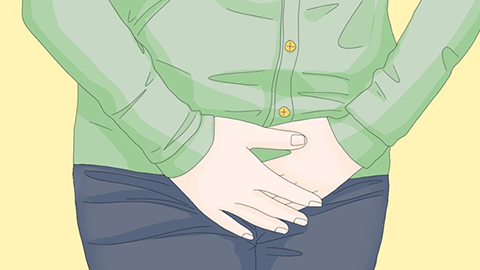Why do women experience urinary incontinence when coughing?
Female urinary incontinence during coughing may be caused by factors such as aging, pregnancy and childbirth, pelvic floor muscle relaxation, cystitis, or overactive bladder. Management should be based on the specific situation. It is recommended to visit a hospital promptly and follow medical advice for treatment.

1. Aging: With increasing age, women's pelvic floor muscles gradually relax, weakening their support for the urethra. This can lead to urinary leakage during activities that increase abdominal pressure, such as coughing. It is recommended to consistently perform pelvic floor muscle exercises, such as Kegel exercises. Contract the pelvic floor muscles for 3 seconds, then relax, repeating 10-15 times per set, and performing 3-4 sets daily to strengthen the pelvic floor muscles and improve urinary leakage.
2. Pregnancy and Childbirth: During pregnancy, the enlarged uterus can compress the pelvic floor, while pelvic floor muscles and nerves may be damaged during childbirth, potentially causing urinary leakage during coughing after delivery. In addition to pelvic floor muscle exercises, postpartum women may benefit from appropriate rehabilitation therapies, such as biofeedback therapy at professional facilities, to promote recovery of pelvic floor function.
3. Pelvic Floor Muscle Relaxation: Pelvic floor muscles are important structures supporting organs such as the bladder, uterus, and rectum. When these muscles relax, the support for these organs weakens, potentially leading to problems like urinary leakage. It is recommended to perform pelvic floor muscle rehabilitation exercises under a doctor's guidance, such as Kegel exercises, which can enhance the strength and improve the elasticity of the pelvic floor muscles.
4. Cystitis: Bacterial infection causing inflammation of the bladder can irritate the bladder mucosa, increasing its sensitivity and potentially leading to urinary leakage during coughing episodes with elevated abdominal pressure. Symptoms often include frequent urination, urgency, and pain during urination. Patients may use medications such as levofloxacin tablets, Sanjin tablets, or cefuroxime axetil tablets under a doctor's guidance to combat infection and reduce inflammation.
5. Overactive Bladder: Instability and frequent contractions of the bladder detrusor muscle can lead to urgency and frequency of urination, with leakage easily occurring during coughing. It is recommended to use medications such as tolterodine tartrate tablets, solifenacin succinate tablets, or mirabegron extended-release tablets under a doctor's guidance to inhibit contractions of the bladder detrusor muscle and alleviate symptoms.
In daily life, maintaining a healthy lifestyle, such as controlling weight, quitting smoking, and reducing caffeine intake, can also help alleviate symptoms of urinary incontinence.
References:
[1] Zhao Hongbo, Liu Yingting, Jin Hao, et al. Application progress of Kegel exercise combined with pelvic floor magnetic stimulation in the rehabilitation of stress urinary incontinence[J]. Chinese Modern Doctor, 2025, 63(06): 128-130+146.
[2] Yidayiti·Tuoheti, Bu Hailiqiemu·Aixiding, Azidanmu·Awuti, et al. Effects of electromagnetic stimulation combined with vaginal dumbbells and a pelvic floor rehabilitation device on pelvic floor muscle function in postpartum women with urinary leakage[J]. Hebei Medical Journal, 2025, 47(02): 287-290+294.




